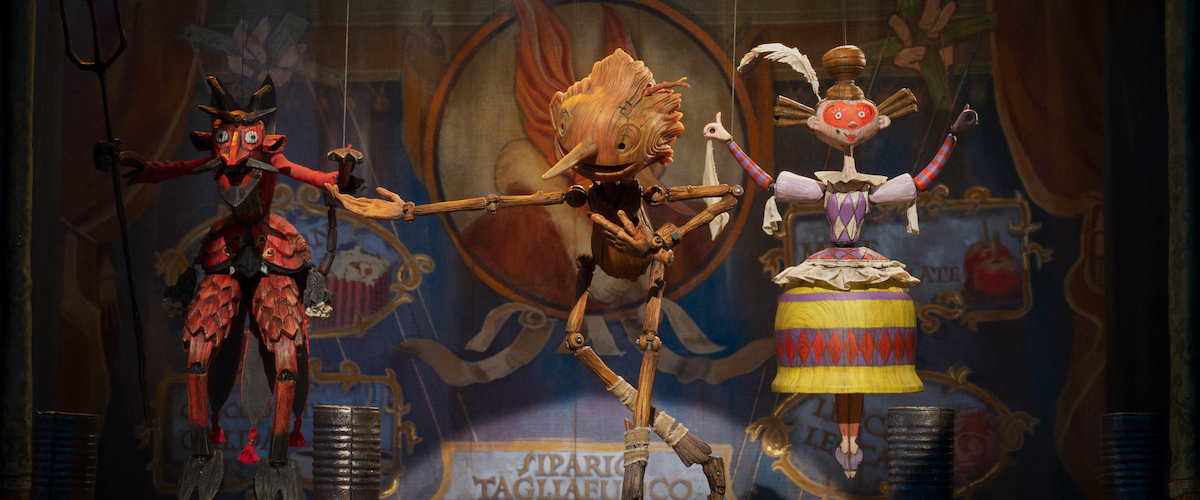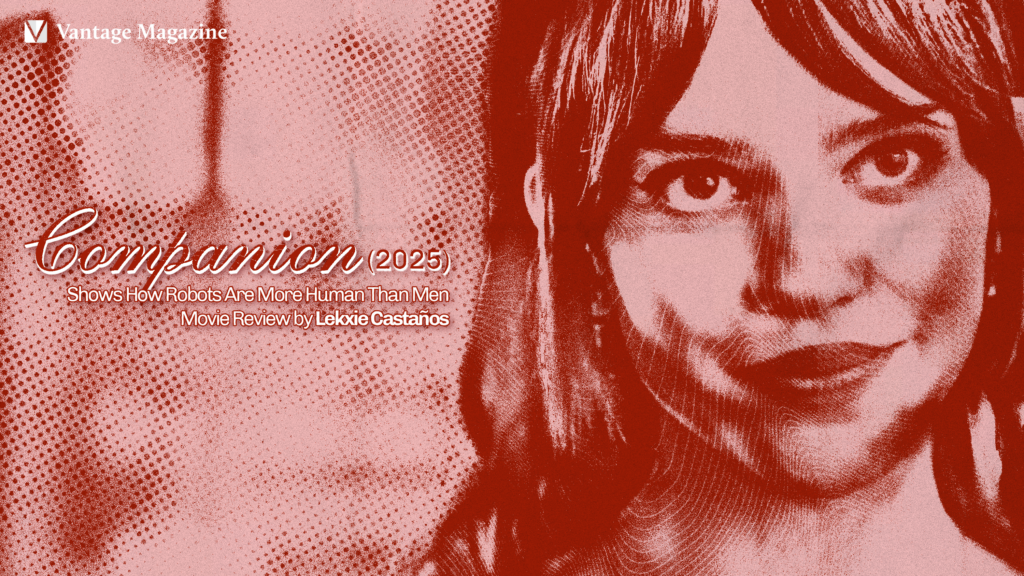What happens when a sentient wooden boy traverses a war-stricken Italy on a quest for humanity? Simple: pure magic! At least, according to Stephen King.
Guillermo del Toro’s Pinocchio (2022), co-directed by Mark Gustafson, is certainly nothing short of that. After woodcarver Geppetto (David Bradley) loses his son in a violent tragedy, he creates the titular protagonist (Gregory Mann) in his stead. With a pinewood body full of childlike curiosity, Pinocchio braves the human world in hopes of becoming one himself.
The film combines the creative freedom of stop-motion with trademarks of the Carlo Collodi fairytale—the nose that grows upon lying, the conscience taking a cricket’s form, and the bittersweet woes of learning right from wrong.
Previous retellings of Pinocchio have either gained comedic buzz about being on one’s own or fallen short of the original story’s youthful premise. Contrastingly, del Toro’s adaptation puts a fantastical spin on the life of the young puppet we’ve all known and loved. It captures the innocence of growing up, quirks and all, in an animated spectacle that took fifteen years to make.
There’s never a dull moment in Pinocchio’s pursuit of becoming a “real boy,” and the movie’s vibrant songs, characters, and themes are to thank.
It’s not so much of a musical as it is an adventure for all ages. However, del Toro’s Pinocchio still flaunts a soundtrack with as much personality as the characters singing it. There are warm, upbeat harmonies for Pinocchio; solemn tunes for his trusted six-legged guide Sebastian J. Cricket (Ewan McGreggor); and extravagant melodies for scheming circus master Count Volpe (Christoph Waltz) and his monkey sidekick Spazzatura (voiced by a remarkably dedicated Cate Blanchett).
While they don’t have their own numbers, celestial sisters Life and Death (both voiced by Tilda Swinton) also add a whimsical ambiance to Pinocchio. Like the classic’s Blue Fairy, Life makes Pinocchio immortal, and Death patiently listens to the protagonist’s trivial rambles about his existence. We see the wisdom in the two divine bodies as they show Pinocchio how eternal life is both a blessing and a burden.
The songs are only some of Pinocchio’s highlights, though. Besides its homage to the laudable stop-motion medium, what gives this Netflix movie an edge is its portrayal of empathy in Pinocchio’s connections with humans. Whether it’s through Geppetto’s fatherly love or budding friendship with soldier-to-be Candlewick (Finn Wolfhard), it’s refreshing to watch Pinocchio see reality through their eyes, not just his own.
These strong suits aside, reality checks are what the film does best. Society doesn’t welcome Pinocchio with peace but with opportunists and power-hungry leaders. Instead of following them, Pinocchio questions their morals and even his own purpose in life. The world isn’t as wonderful as we envision it to be, he soon learns. We can’t escape from its injustices, either, but del Toro’s eccentricities help us believe in the positive impacts we make on ourselves and others that are as real as their hindrances.
It’s no surprise that Pinocchio dares to be different with del Toro taking the reins. It unapologetically heeds his testament that stop-motion isn’t a genre, but an art form that sparks hope and action amidst present-day plight. Tackling other heavy subjects like vulnerability, societal conflict, and even toxic masculinity, the movie incites change not only in our hearts, but also in our worldviews that makes our streaming time worth every second.






